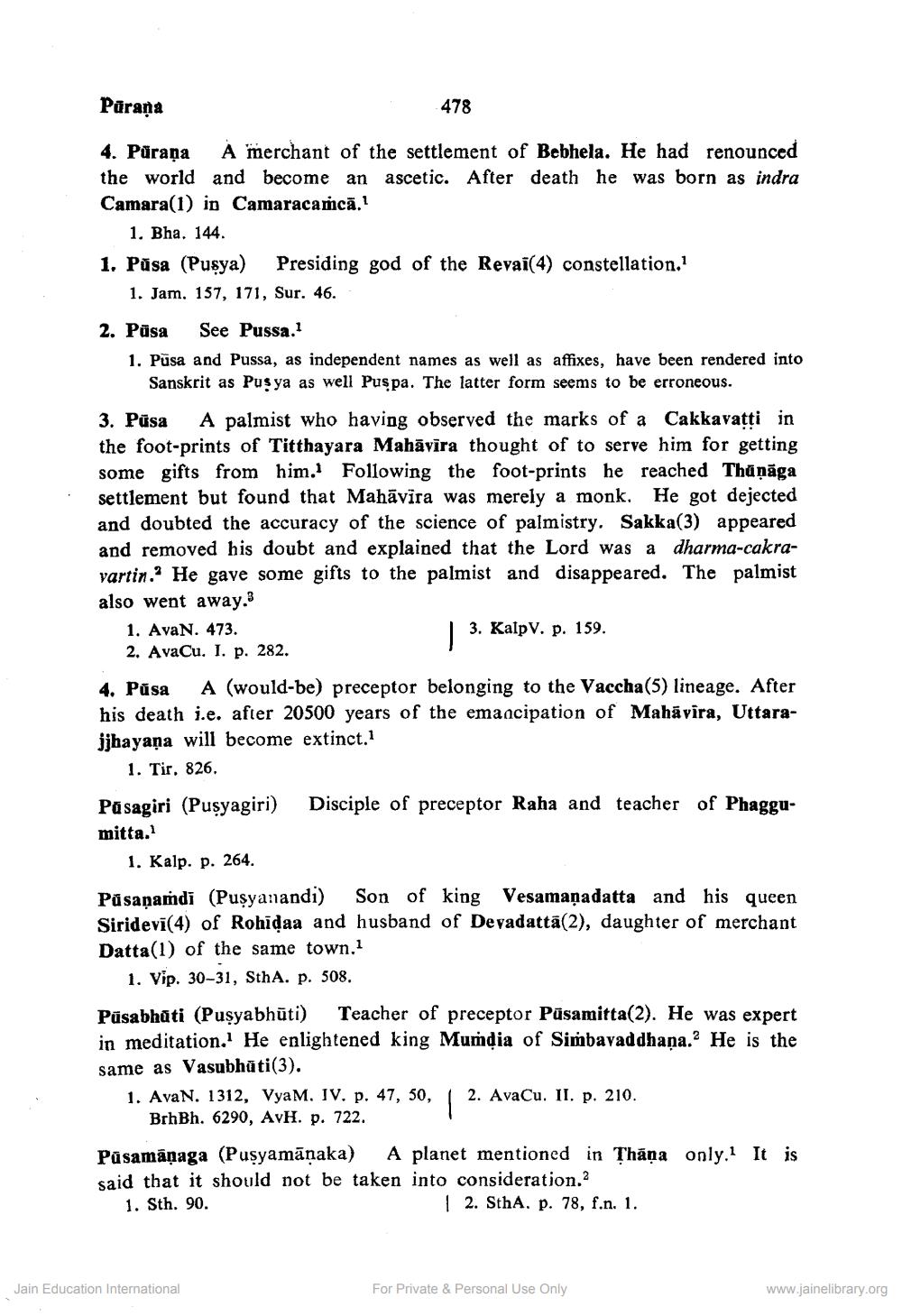________________
Pūrana
478
4. Pärapa A merchant of the settlement of Bebhela. He had renounced the world and become an ascetic. After death he was born as indra Camara(1) in Camaracamcā.
1. Bha. 144. 1. Pūsa (Pusya) Presiding god of the Revai(4) constellation.'
1. Jam. 157, 171, Sur. 46. 2. Pūsa See Pussa. 1. Pusa and Pussa, as independent names as well as affixes, have been rendered into
Sanskrit as Pusya as well Puspa. The latter form seems to be erroneous.
3. Pūsa A palmist who having observed the marks of a Cakkavatti in the foot-prints of Titthayara Mahāvīra thought of to serve him for getting some gifts from him. Following the foot-prints he reached Thūņāga settlement but found that Mahāvīra was merely a monk. He got dejected and doubted the accuracy of the science of palmistry. Sakka(3) appeared and removed his doubt and explained that the Lord was a dharma-cakravartin." He gave some gifts to the palmist and disappeared. The palmist also went away.3 1. AvaN. 473.
3. KalpV. p. 159. 2. AvaCu. I. p. 282. 4. Pūsa A (would-be) preceptor belonging to the Vaccha(5) lineage. After his death i.e. after 20500 years of the emancipation of Mahāvira, Uttarajjhayana will become extinct.1
1. Tir. 826.
Pasagiri (Pusyagiri) Disciple of preceptor Raha and teacher of Phaggumitta.
1. Kalp. p. 264. Pasanamdi (Pusyanandi) Son of king Vesamaņadatta and his queen Siridevi(4) of Rohidaa and husband of Devadattā(2), daughter of merchant Datta(1) of the same town.1
1. Vip. 30-31, SthA. p. 508. Püsabhūti (Pusyabhūti) Teacher of preceptor Pusamitta(2). He was expert in meditation. He enlightened king Mumdia of Simbavaddhaņa.? He is the same as Vasubhūti(3). 1. AvaN. 1312, VyaM. IV. p. 47, 50, 2. AvaCu. II. p. 210.
BrhBh. 6290, AvH. p. 722. Pasamāṇaga (Pusyamānaka) A planet mentioned in Thāņa only. It is said that it should not be taken into consideration.2 1. Sth. 90.
12. SthA. p. 78, f.n. 1.
Jain Education International
For Private & Personal Use Only
www.jainelibrary.org




